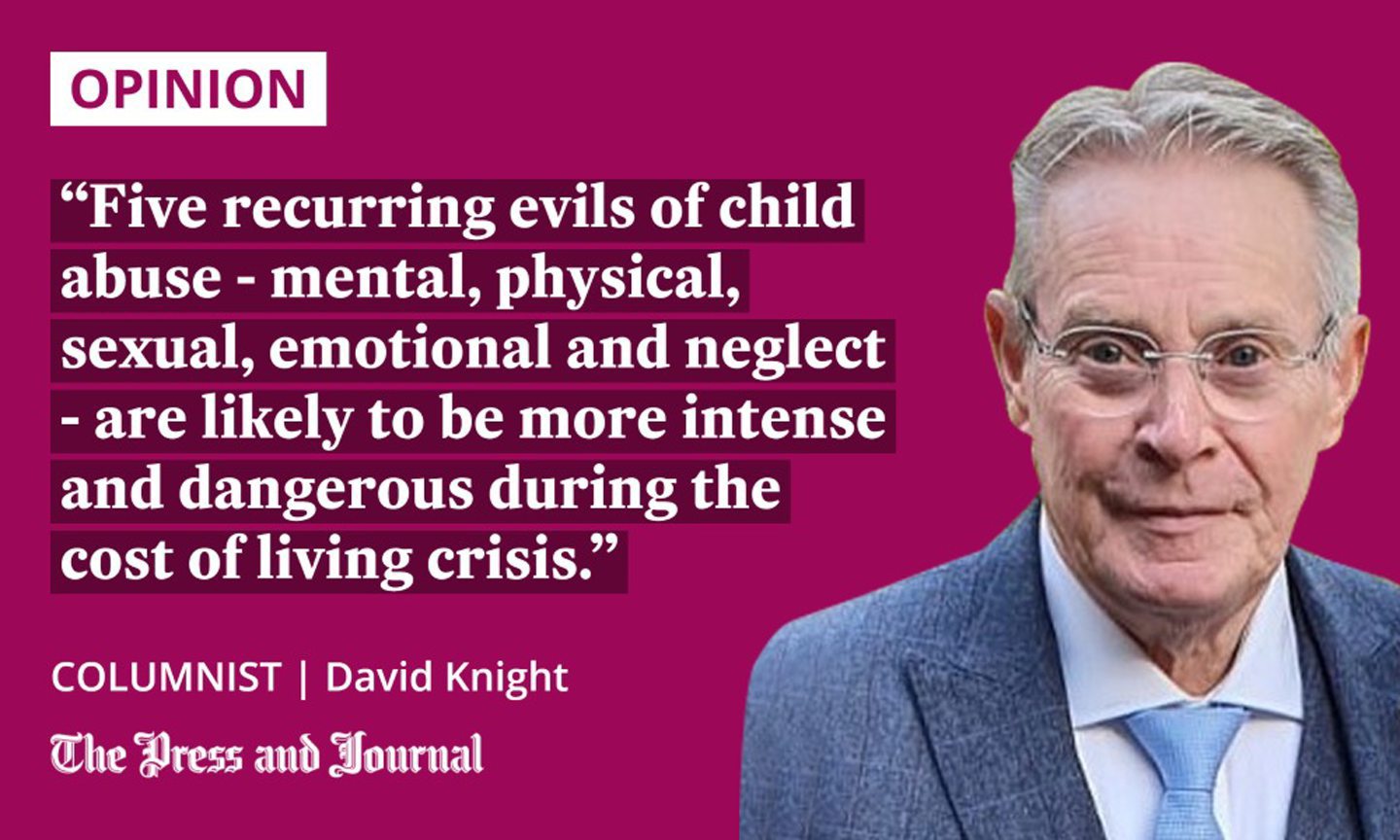It seems adults in Aberdeen may be letting down children who desperately need their help, writes David Knight.
I have a vivid memory of the day I tried to talk someone down from a railway bridge as they were preparing to leap to their death.
It was a gut-wrenching episode; one misplaced word and he might jump off.
I was learning that you can’t just shout: “Don’t do it!” Or make a grab for them, like in movies. Either scenario is likely to be fatal.
No, there are special techniques which involve joining them on a trip into the darkest depths of their despair; sharing their heartbreak, but searching all the time for a flicker of hope in their story – and finding a reason for them to cling to life.
Similar to hugging floating driftwood after being shipwrecked.

I must say at this juncture that none of this was real, by the way. It was a role-play exercise.
But, the nerve-shredding effect was real, to all intents and purposes, because – for 20 minutes or so – it did feel like life or death to us. You see, I was being tested, with a small group of fellow Childline volunteers, as we underwent anti-suicide training.
It came to mind again as Childline revealed a serious shortage of volunteers, and doubts emerged over Scotland’s child protection committees.
Our Childline counsellors are here to listen to any problem, no matter how big or small it may seem.
If you know a child or young person who may be struggling, they can call Childline on 0800 1111 or use https://t.co/G2Ls1PF7xV for info and advice. pic.twitter.com/d6uNhufPWZ
— NSPCC (@NSPCC) March 24, 2022
Thinking back, we were desperate to succeed, and every word was delivered with the same care as a trapeze artist’s step on a tightrope. Our watching trainers had their fingers crossed, too.
We’d heard previous trainees before us mutter on their return to base: “They jumped.” Meaning they failed to talk their “victim” down.
But our little group – working in relay, taking turns to counsel him – was elated. He came down, safe and sound – from a table pretending to be a bridge.
The actor was a child-protection professional, so he made it as real as possible; he made us work for it.
The “bridge” was in a corner of a hall in a draughty old school; surroundings which would have given anyone suicidal thoughts, come to think of it.
Childline counsellor numbers have dropped dangerously
I remember my 20 months or so volunteering with Childline with fondness. They taught me fantastic, transferable skills, and offered a wonderful camaraderie.
One-to-one on a phone line with a child was as hair-raising – and satisfying – as anything I encountered in my colourful journalistic career. Funny, too, at times.
So, I was shocked to read in The P&J that the number of counsellors at the Aberdeen base had plummeted by 35%. And that suicidal thoughts still dominated calls.
They are short of volunteers at a time when they are most needed.
I hope more volunteers come forward, because the experience enriches their lives, too
Five recurring evils of child abuse – mental, physical, sexual, emotional and neglect – are likely to be more intense and dangerous during the cost of living crisis. It’s even feared that the World Cup could trigger a rise in domestic abuse.
I hope more volunteers come forward, because the experience enriches their lives, too. They aren’t expected to solve callers’ troubles in an instant, but offer a shoulder and a guiding hand.
Child protection committee members are skipping meetings
In my experience, something which Childline volunteers took very seriously was turning up for their telephone counselling shifts.
Skipping shifts could actually impact directly on desperate young callers trying to make contact. So, they have a deep sense of duty, despite being the unpaid backbone of the service.
Contrast that with another alarming story I spotted in my digital P&J subscription, a few pages away from the Childline one.
I learned that members of Scotland’s child protection committees – filled by well-paid public servants from police, social work and courts – were routinely skipping meetings. Up to 43% absenteeism, in the worst cases.
These were shocking statistics, but at least most of the committees released figures willingly to The Press and Journal. Not in Aberdeen’s case, unfortunately.
I read with incredulity an unconvincing Aberdeen council justification for refusing to reveal its figures.
The protection of members seemed first and foremost; they wanted to protect their identities. Only Aberdeen members’ job titles appear online, and not their names, which mirrors this secrecy.
I thought this type of work was supposed to be transparent and accountable after too many past scandals – and hollow “lessons will be learned” excuses.
Statistics reek of complacency
Setting aside questionable claims over protecting anonymous public servants, there is nothing to stop Aberdeen from issuing the basic absentee figures without attributing them to named individuals. Perhaps Aberdeen has some impeccable statistics, but we don’t know.
By the law of averages, I suspect they sit somewhere between the worst committees at 43% and the “best” at 16%. These statistics reek of complacency.
In this field, complacency is a killer for kids at risk.
After being challenged in Holyrood about the worst committee no-shows, Children’s Minister Clare Haughey demanded answers.
“Child protection and child safeguarding are everyone’s business,” she added. Except in Aberdeen, that is.
David Knight is the long-serving former deputy editor of The Press and Journal


Conversation